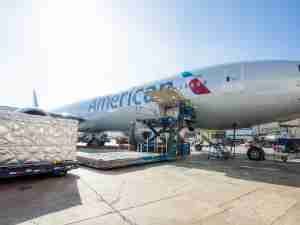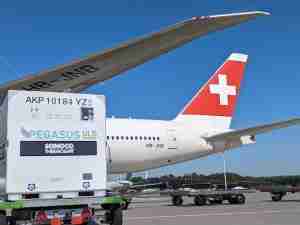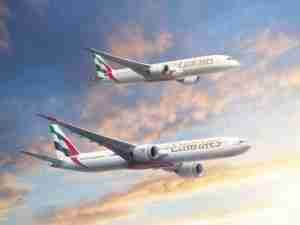American Air CEO Assails Delta on Air Traffic Control Plan
By: | Apr 12 2016 at 07:36 PM | Air Cargo
American Airlines Group Inc.’s top executive lashed out at Delta Air Lines Inc. for splitting with other U.S. carriers that support a proposal to privatize the nation’s air-traffic-control system.
Delta “doesn’t see what everybody else in the industry sees” about an issue that’s central to airlines’ future, American Chief Executive Officer Doug Parker said Tuesday. Parker, who used a recent speech to the U.S. Chamber of Commerce to lobby for privatization, made his latest comments during a question and answer session at the CAPA Americas Aviation Summit in Las Vegas.
The division over air traffic control isn’t the first time Delta has split with other U.S. airlines. Delta said in October that it would leave Airlines for America, in part because the industry trade group hadn’t taken a strong stance regarding competition from Persian Gulf carriers.
“Why is it that Delta believes something different that no other airline believes?” Parker said. “I don’t think it’s because they have different facts. I think it’s because they have a different agenda. What’s best for Delta is for the rest of us to live in an environment that is relatively more harmful to us than to them.”
Atlanta Hub
Atlanta, Delta’s largest hub, isn’t as congested or delay-prone as other airports, so the airline may be satisfied with the current system, Parker said. Some of the most delay-plagued airports are in the Northeast, at Philadelphia International, Newark Liberty International in New Jersey and LaGuardia and John F. Kennedy International in New York.
A proposal to put the Federal Aviation Administration’s air-traffic duties under a nonprofit corporation independent of the government passed a House committee but has stalled amid opposition from Democrats and a handful of powerful Republicans. In the Senate, lawmakers didn’t include privatization provisions in a bill debated this week to set FAA policy.
Kate Modolo, a spokeswoman for Delta, discounted the idea that Atlanta lacks a congested airspace.
“Delta is the largest operator in the congested and weather-strapped airspaces in NYC and Atlanta,” Modolo said in an e-mailed statement. “We know all too well the risks of losing momentum on the progress we’ve made to improve the airspace by switching to a privatized air traffic control model with no evidence that doing so would improve air travel.”
Delta had been the largest source of funds for lobbying against what it says are unfair government subsidies for three Persian Gulf carriers, a stance backed by American and United Continental Holdings Inc. Airlines for America hasn’t lobbied strongly on the issue as some members—such as JetBlue Airways Corp., which has code-sharing agreements with some Gulf airlines—support expansion by the Middle East carriers.










